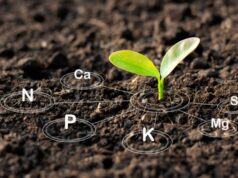Introduction
Organic farming has gained popularity in recent years due to the increasing demand for healthier and safer food options. Organic farming is a sustainable agricultural practice that emphasizes the use of natural fertilizers, crop rotation, and the avoidance of synthetic pesticides and fertilizers. In this blog post, we will explore the benefits and challenges of organic farming and its future prospects.
What is Organic Farming?
Organic farming is an agricultural practice that focuses on using natural methods to grow crops and raise livestock. Organic farmers use natural fertilizers, such as compost, manure, and bone meal, to enrich the soil and promote plant growth. They also use crop rotation to maintain soil health and avoid plant diseases. Organic farmers avoid using synthetic pesticides and fertilizers, genetically modified organisms (GMOs), and irradiation.
The Benefits of Organic Farming
- Health Benefits: Organic foods are free from harmful chemicals and pesticides, making them healthier and safer for human consumption. Organic foods also contain more nutrients and antioxidants, which can boost the immune system and reduce the risk of chronic diseases.
- Environmental Benefits: Organic farming methods are more sustainable and environmentally friendly than conventional farming methods. Organic farming reduces soil erosion, improves soil health, and promotes biodiversity. Organic farmers also avoid using harmful pesticides and fertilizers that can contaminate water sources and harm wildlife.
- Economic Benefits: Organic farming can be a profitable venture for farmers, as consumers are willing to pay a premium for organic products. Organic farmers can also save money on synthetic fertilizers and pesticides, which can be costly.
Challenges of Organic Farming
- Higher Labor Costs: Organic farming requires more labor-intensive methods, such as hand weeding, which can be more expensive than conventional methods. Organic farmers may also face a shortage of skilled labor due to the declining interest in agriculture as a career.
- Lower Yields: Organic farms may have lower yields than conventional farms due to the avoidance of synthetic pesticides and fertilizers. However, research has shown that organic farms can produce comparable yields if managed properly.
- Certification Costs: Organic farmers must pay for certification to prove that they meet organic standards, which can be costly. Certification costs can be a significant barrier for small-scale farmers, who may not have the financial resources to obtain certification.
The Future of Organic Farming
- Increasing Demand: Consumer demand for organic products is growing, which is creating opportunities for organic farmers. The global organic food market is projected to grow at a CAGR of 16.15% from 2020 to 2027.
- Technology and Innovation: Technology is making organic farming more efficient and cost-effective. For example, precision agriculture technologies can help organic farmers optimize their crop yields and reduce labor costs. Innovations in soil health management can also help organic farmers improve soil fertility and productivity.
- Government Support: Governments are starting to provide support for organic farming, which will help to increase its viability as a mainstream agricultural practice. For example, the European Union provides subsidies to farmers who adopt organic farming practices.
Conclusion
Organic farming has numerous benefits, including better health outcomes, environmental sustainability, and economic viability. However, organic farming also faces challenges, such as higher labor costs, lower yields, and certification costs. The future of organic farming looks promising, with increasing consumer demand, technological innovations, and government support. As consumers, we can support organic farming by buying organic products and advocating for policies that promote sustainable agriculture.







